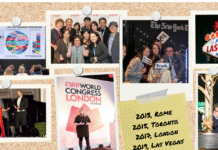Correspondent Priyanka Tanwar interacted with 2022 JCB Prize for Literature winning translator Baran Farooqi on Urdu translations, the richness of Indian languages, and scope of translations in India.
Edited excerpts from the interview:
Indian Printer & Publisher (IPP) – How was your experience at the JLF 2023?
Baran Farooqi – Oh, it’s lovely. I feel exhilarated. And it’s an uplifting experience because of the way they’ve done up the venue. This time, they have this vast spread out venue, unlike Diggi Palace, which had its own charm. But I really enjoyed the way there were parallel sessions and you kept bumping into authors and translators and theorists. We owe a huge thank you to the organizers.
IPP – Your translated book The Paradise of Food recently won the JCB Prize for Literature 2022. Tell us about this work.
Baran Farooqi – Well, this is an Urdu novel. And I believe very few Urdu novels have received translations in the recent past. In India, we had a few giants in Urdu fiction such as Qurratulain Hyder, Ismat Chugtai and Saadat Hasan Manto.
Qurratulain Hyder happened to translate her work herself and she was very possessive about it. But being the author translator, she kind of meddled with the text and took many liberties. Not to say that the translations are bad. The translations are good but then the originals are much, much more expansive. If you really want to get the feel of Qurratulain Hyder, you need to get into her original writing. However, the translations do serve the purpose.
As far as Ismat Chugtai and Manto are concerned, they are very much in fashion. They’ve been raging. Both of them are part of the syllabi of most literature courses, particularly English. Apart from that, I don’t think there have been very many good translations of Urdu fiction work. Maybe an Intizar Hussain here or another Prem Chand there. But we could do with many more. At the same time, it would also appeal to the readers to go to the original and read it in the original Urdu. But then, of course, translations do carry their own worth and value.
As far as The Paradise of Food is concerned, I feel that it has accomplished something really worthy of celebrating. Celebrate in the sense that Khalid Jawed is an author who is waiting to be translated with some amount of flair and élan because he received a couple of translations. A couple of his stories were translated pretty well. For example, Shama Fateh Ali has done one translation, Rakhshanda Jalil has done another of his stories. But then, stories don’t make such a massive impact as a novel does. So, this being his major work, his first novel is a slimmer volume — we can call it a kind of a base. It’s groundwork for this novel, because the first novel talks about an obsessive protagonist who’s constantly talking to the idea of death. It is portrayed as if he is carrying death in his pocket. He says, ‘ki mere jeb mein hai, wo baat kar raha hoon’.
Nemat Khana is much more substantial, which has been translated as The Paradise of Food. I feel that we owed it to the readers to deliver it in English. And I think it is going to be a historic moment in the history of contemporary Urdu fiction because finally people are looking up and saying, OK, there’s more to Urdu fiction than Manto and Ismat Chugtai.
IPP – What is the scope of translations in a country like India?
Baran Farooqi – Oh, massive, massive scope of translations. Translations are already transforming us. Me as a reader of many texts, Malayali texts or Tamil or even a Bengali text. I feel that it has transformed me in many ways. It has made me much more comfortable with what I used to find a little exotic. Studying in a convent school, we had all these nuns who came from Kerala and they had a particular kind of accent. We would find it strange and sometimes we would sneer at it behind their backs. But I can totally empathize. I mean, I’m not saying it in a condescending manner at all. But I can today regard it with the same amount of respect as I would regard my own accent or the accent of the people of Uttar Pradesh.
I would particularly cite the case of The God of Small Things by Arundhati Roy. Though it’s not a translated text, it reads like a translated text in the sense that today we don’t shy away from saying that such and such text is a translated text. Earlier people used to think the ultimate compliment is that it’s a translated text. But today such ideas don’t necessarily mean I have done a great piece of work. The idea is to bring my culture face to face with the reader and not to obliterate it just because I’m getting overawed by the target language. In that sense, I feel that translations have a tremendous amount of scope in India and we should encourage them. They should be from one Indian language to another.
And of course, translating into English has all the moolah out there. I’m not saying it’s not something that we shouldn’t do. I, myself, am enjoying the limelight because of that but it would be nice if we translated into each other’s Indian languages also.
IPP – How do you bring the flavor of Urdu to your translated work?
Baran Farooqi – It’s easier for translators of today because we are allowed to retain kinship terms. For instance, in this novel, the nickname of the protagonist is Guddu Mian. In Muslim households, if you want to be affectionate and respectful at the same time, we call our children by their first names. In that way, when someone has to be affectionate and respectful to a boy, they call him Mian. In today’s day and age, people consider Mian and Bibi to be just Mian and Bibi. But in Urdu-speaking households, boys are called Mian and girls are called Bibi. Addressing them like this means with respect and love. Now, if I had to translate Mian, it would have been difficult, so I retained that.
I did another short story in Urdu in which the protagonist is a younger brother. He calls the older brother as Bada. He repeatedly says ‘Bada has come, Bada has not come’. How do I translate that?
These kinds of problems arise in translation because they are peculiar in certain cultures or households. For example, Bada Bhai is called Dada in some households. It cannot be translated because there is no such word in English.
Unfortunately, the British have few words, and we have adopted them. For example Aunty. The word Aunty is universal. Now we are applying it to everybody. Whereas we have different kinship names – we have Bua, Maasi, Phuppi and Mami. But we are now universal Aunty. Everybody is an Aunty.
Translating from Urdu and other such languages will help us to realize where we are richer and better endowed than them, and recover those terms, rather than lose them.
IPP – According to you, how many books are getting translated from Urdu into English in India each year?
Baran Farooqi – Oh, not many. India doesn’t have so many translators to offer. In Pakistan or some such country where Urdu is taught at the school level, you could find more translators.
I guess from Urdu to English, 50 odd books have been translated. I can take a wild guess. Not more than that.
















